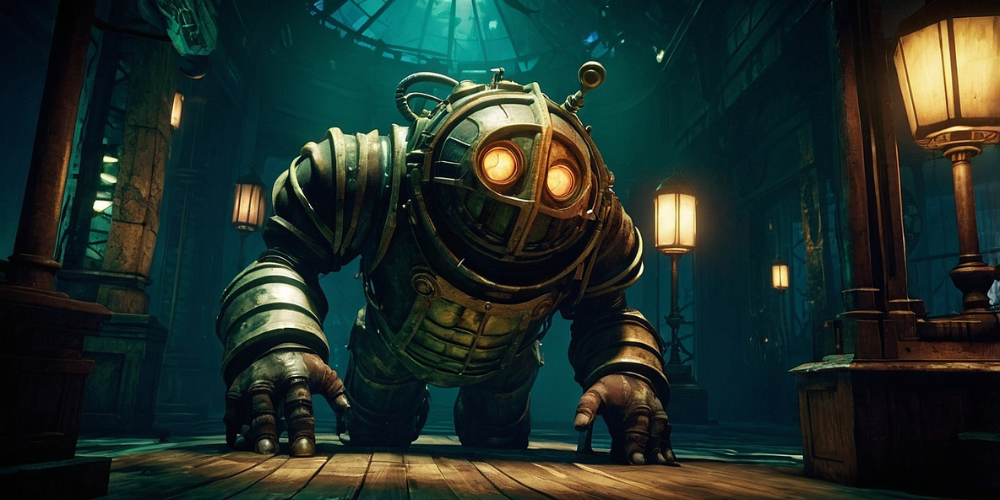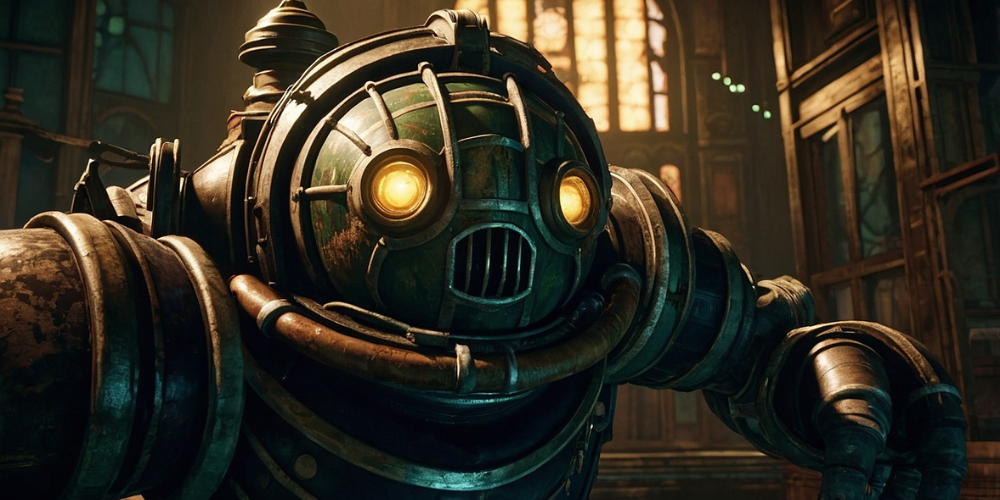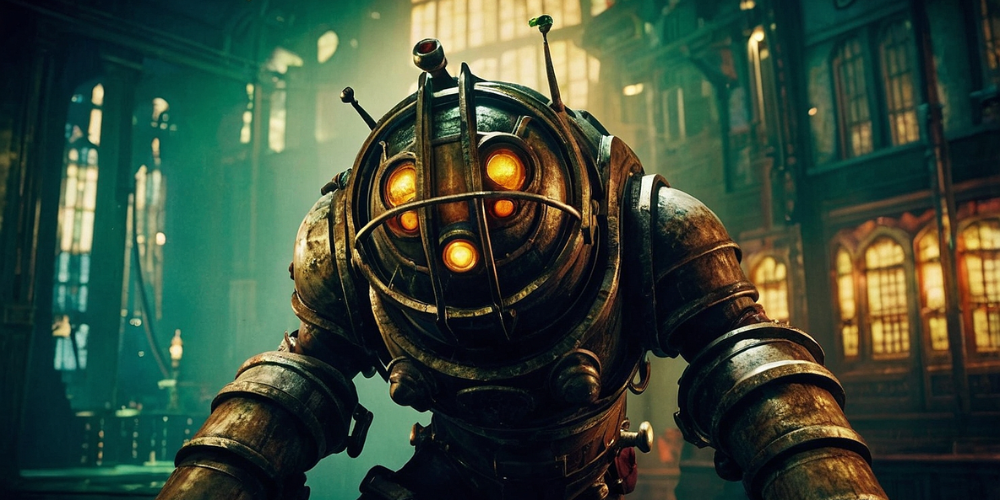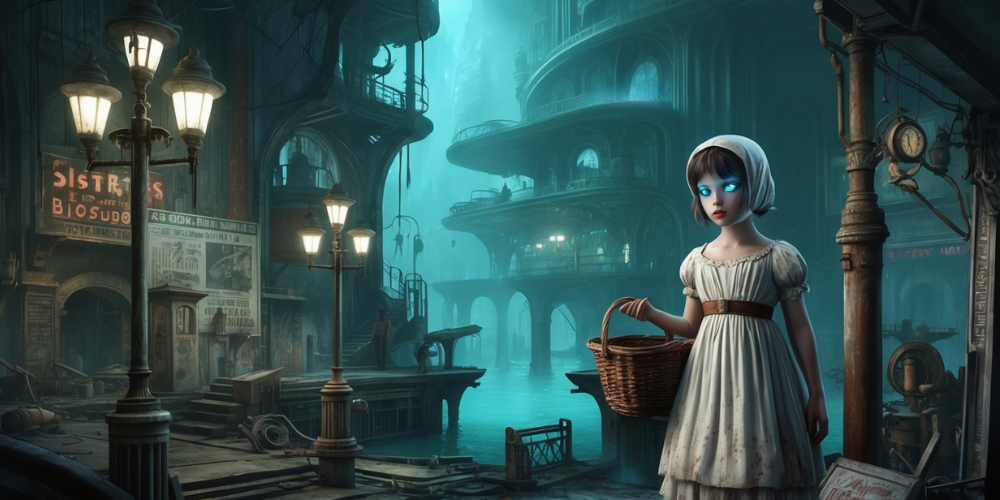The Ethical Dilemmas in BioShock
- Oct 11, 2024
- 20

When I first entered the underwater city of Rapture in BioShock, I was immediately struck by its haunting beauty and the stark contrasts that lay beneath its surface. The art deco architecture, the shimmering waters, and the promise of a utopian society were enticing. However, as I delved deeper into the world, I grappled with ethical dilemmas that challenged not only my character's decisions but also my personal moral compass. In this surreal environment, the lines between right and wrong, altruism and selfishness, blurred infinitely.
The Philosophy of Objectivism
One of the ethical dilemmas that danced in my mind from the outset was the philosophy of Objectivism, promoted by Andrew Ryan, the city’s founder. His mantra of "the self" resonated strongly with the inhabitants of Rapture, leading me to ponder the implications of unfettered capitalism and the pursuit of personal happiness. As I traversed through the ruins, I questioned whether the quest for individual ambition could truly justify the suffering of others. Was the pain of the many an acceptable cost for the fulfillment of a single person's dreams?
The Consequence of Choices
The game constantly reminded me that every choice I made had consequences. The Little Sisters, genetically altered children harvesting ADAM, served as a poignant example of this moral quandary. Each encounter with them forced me to face the duality of my options: to save them or to harvest them for their precious resources. The conflict lingered in my mind like an unshakeable shadow. Was I being benevolent by saving them, or was I merely delaying the inevitable? The vast differences in their fates teased the boundaries of morality.
The Role of the Splicers
As I encountered the Splicers, mutated beings driven mad by ADAM, I began to empathize with their plight. These were once ordinary citizens who succumbed to the allure of power and enhancement without considering the repercussions. This transformation led me to reflect on addiction and its ethical implications. Was it fair to cast judgment on those who lost themselves in the pursuit of becoming more than human? My interactions with them sparked a recognition of the deeper societal issues lurking beneath Rapture’s glamour.

The Nature of Power
BioShock forced me to confront the essence of power and its potential to corrupt. My encounters with characters like Fontaine made me contemplate the darker side of ambition. As a player, I wielded power—the power to choose, to spare, or to condemn. In the hands of characters like Fontaine, that power was often exploited. I was left with the question: Is the pursuit of power innately corrupting, or does it reveal the true nature of individuals when faced with temptation? This conflict mirrored my struggle against confronting my own motivations.
The Value of Human Life
A pivotal moment for me arose when I faced the choice of whether to save the Little Sisters. The game emphasized not only their intrinsic value, but also what their lives represented within a collapsing society. Each Sister symbolized the innocence lost to greed and ambition, serving as a stark reminder of what truly mattered in a world gone awry. The tension between utilizing them for greater gains versus rescuing them for their lives’ sake highlighted my evolving views on the sanctity of life in a problematic world.
Manipulation and Control
The narrative also introduced themes of manipulation, particularly through the character of Atlas. His bait-and-switch tactics raised questions about trust and deception. Was it ethical to deceive in the name of a greater good? In my pursuit for answers, I realized that many characters employed manipulation as a means toward their own ends. This revelation prompted me to examine the ethics of leadership—is it ever justifiable to twist reality to inspire others, or does that always lead to a path of moral ambiguity?
The Illusion of Choice
As I continued through the levels of Rapture, I became increasingly aware of the illusion of choice. Though I was presented with numerous decisions, I found they often led to similar outcomes. This made me contemplate the structure of society and the freedom it professed. Rapture was a city built on the premise of free will, yet every action was orchestrated by external forces. I began to wonder if absolute freedom was attainable or merely a seductive illusion, and whether the absence of control was a greater ethical quandary.

Gender and Power Dynamics
The representation of gender in BioShock also sparked my ethical contemplation. Female characters, notably the Little Sisters and the “Brute Splicers,” seemed to confront numerous layers of exploitation. The patriarchal undertones present in Rapture displayed a societal structure that often reduced women to mere vessels for their grotesque transformations. I questioned my role as a player witnessing this troubling dynamic. How do societal constructs influence morality? And can we escape the narratives imposed on us?
Redemption and Forgiveness
Another profound dilemma arose from the themes of redemption and forgiveness. Characters like Ryan had the chance for redemption, yet chose tyranny instead. Their refusal to accept the consequences of their actions often left them in morally ambiguous positions. This led me to explore whether I had the ability to forgive characters who continuously made morally questionable decisions. The tension between judgment and compassion was palpable, pushing me to reassess my own capacity for forgiveness.
The Cost of Ignorance
As I ventured deeper into Rapture, I bore witness to the devastating effects of ignorance. The in-game dialogues and environmental storytelling painted a picture of a society unwilling to confront the ramifications of its choices. This ignorance led to widespread suffering, dependency, and chaos, forcing me to contemplate the ethics of complicity. At what point does ignorance become complicity, and is it ethical to remain passive in the face of suffering?
The Search for Truth
Amid the chaos, the pursuit of truth emerged as an ethical focal point. The search for answers regarding the nature of Rapture and its downfall was a personal journey that mirrored my character’s quest for meaning. I grappled with the idea that truth might not always align with morality; seeking the truth sometimes required confronting unsettling realities. This philosophical inquiry led to deeper reflections on whether ignorance is a form of ethical escape from painful truths.

Consequences of Science without Ethics
The role of genetic experimentation and the consequences of playing God loomed large in my experience. The development of ADAM and its destructive side effects served as a cautionary tale about science detached from ethical considerations. Witnessing the discard of humanity in favor of enhanced abilities left me questioning the ethics of such scientific advancements. Is there a threshold where the pursuit of knowledge becomes too dangerous, and should there not be ethical frameworks guiding scientific exploration?
Parental Responsibilities
The relationship between the Little Sisters and their “Big Daddies” resonated deeply with me as I examined notions of protection and sacrifice. The Big Daddies, though terrifying, were devoted guardians, highlighting complex layers of love and duty. As a player, it forced me to contemplate my own views on parenthood and responsibility. What lengths would I go to protect those I care about, and at what cost? These questions reverberated through my actions and beliefs.
The Complexity of Redemption
Ultimately, my journey through Rapture distilled the complexity of seeking redemption amidst chaos. Characters like Jack, confronted by the outcomes of his actions, mirrored my struggle for understanding. The notion that redemption is not linear reflected my experiences and decisions. Each act could lead toward liberation or bondage, challenging my perceptions of both morality and the human experience.
Embracing the Uncertainty
At the core of BioShock, I found that it invites introspection into ethical dilemmas without easy resolutions. The intricacies of the human psyche emerged prominently in the choices I faced. Engaging with the game allowed me to embrace the uncertainty inherent in ethical considerations, helping me explore the myriad of motivations driving human behavior. With every decision, I was reminded that the path to understanding morality is often riddled with complexity and ambiguity.